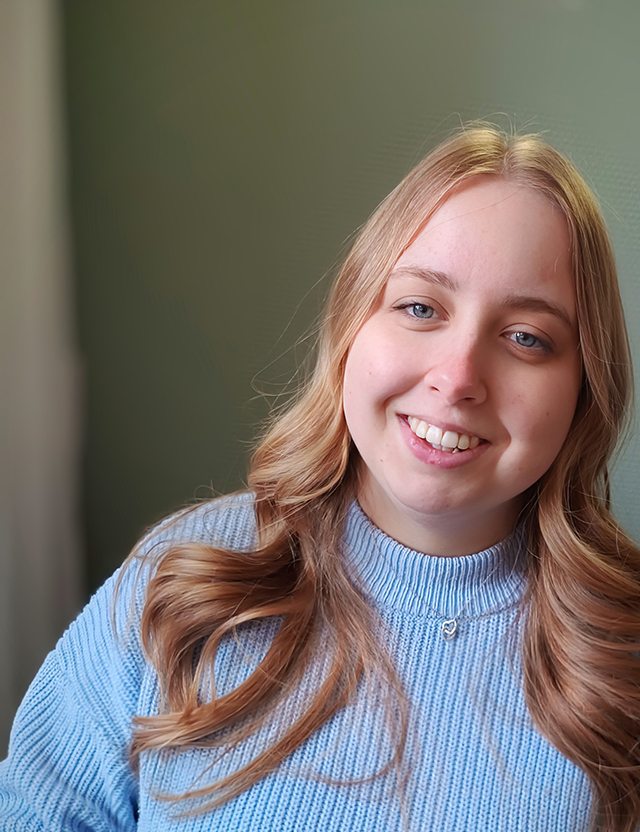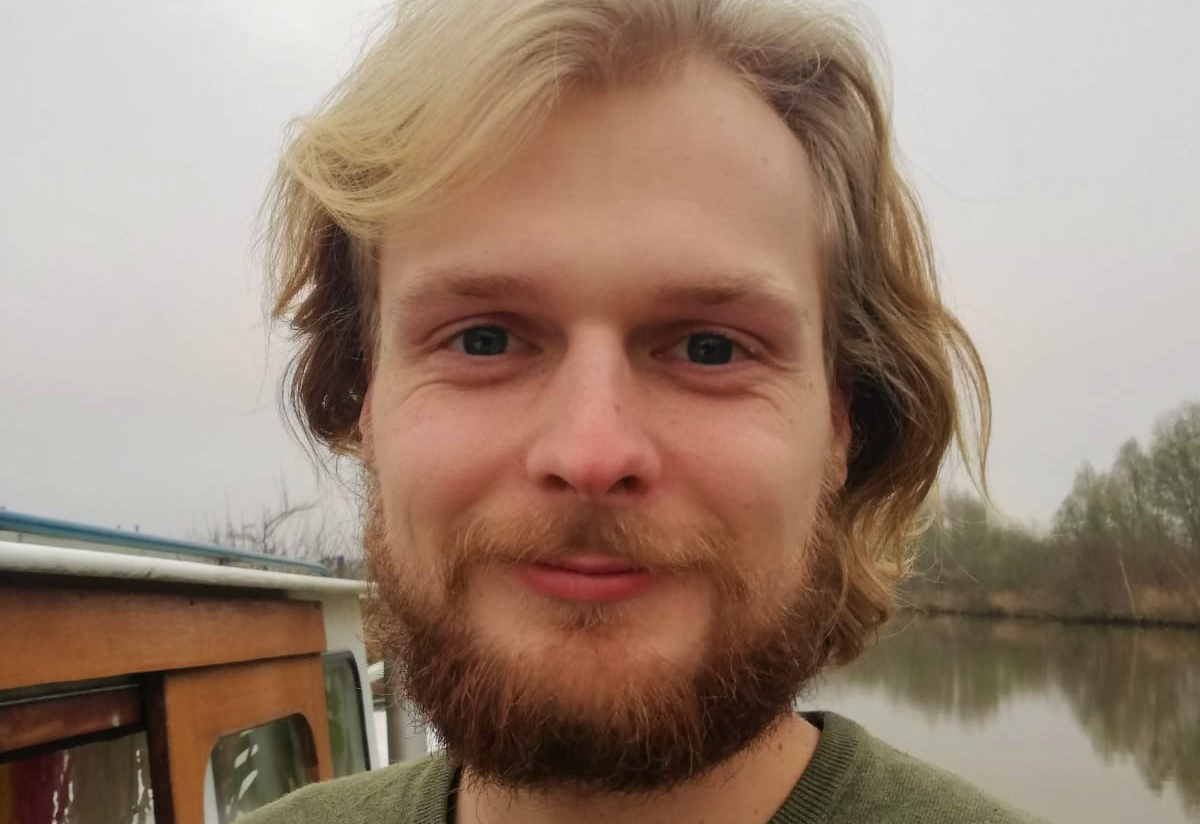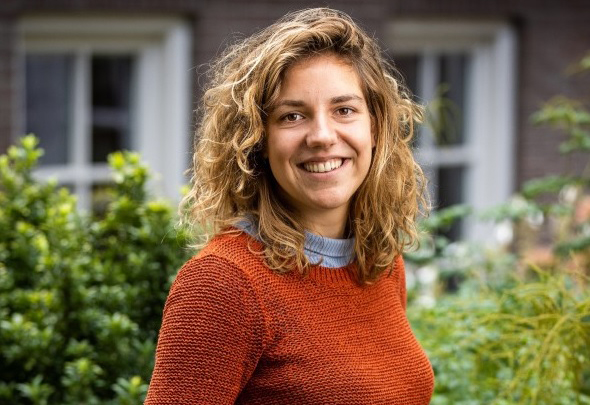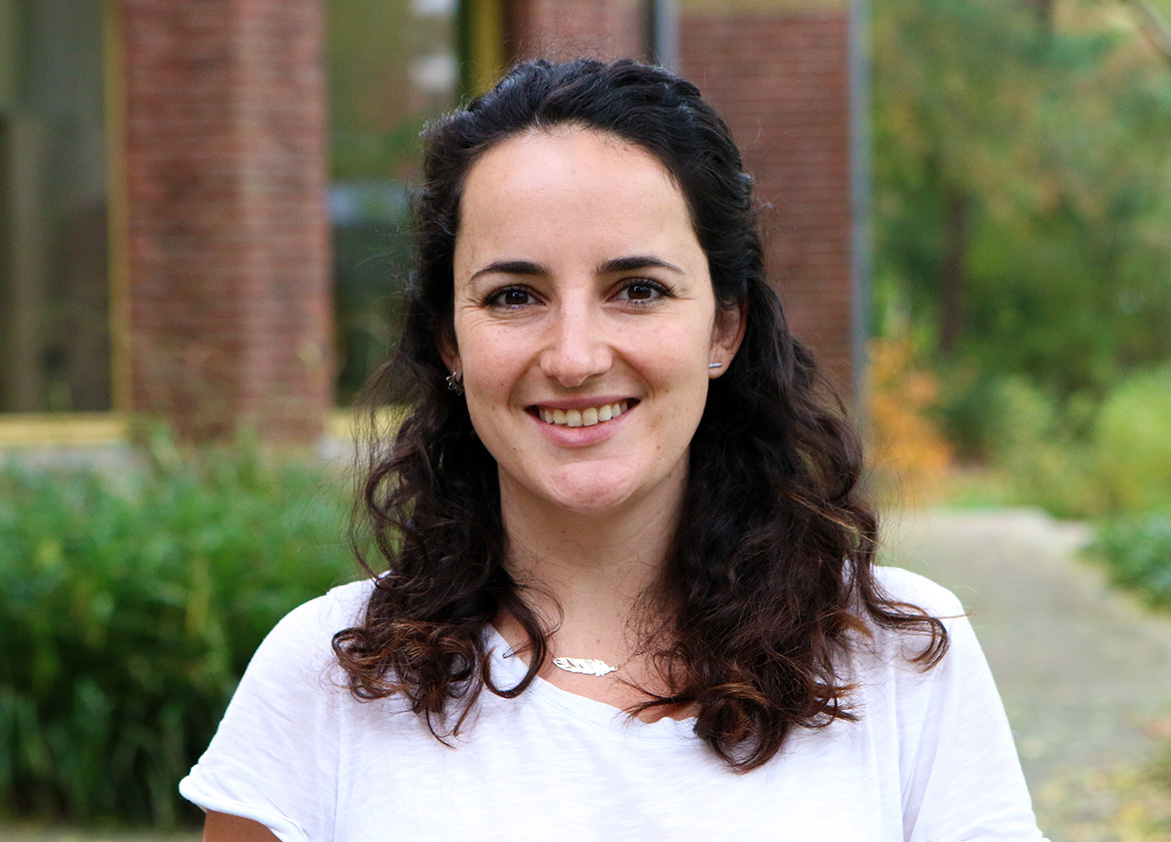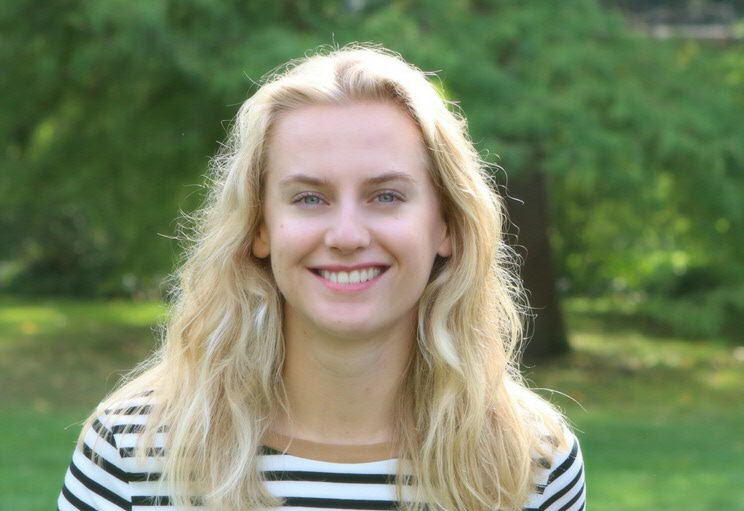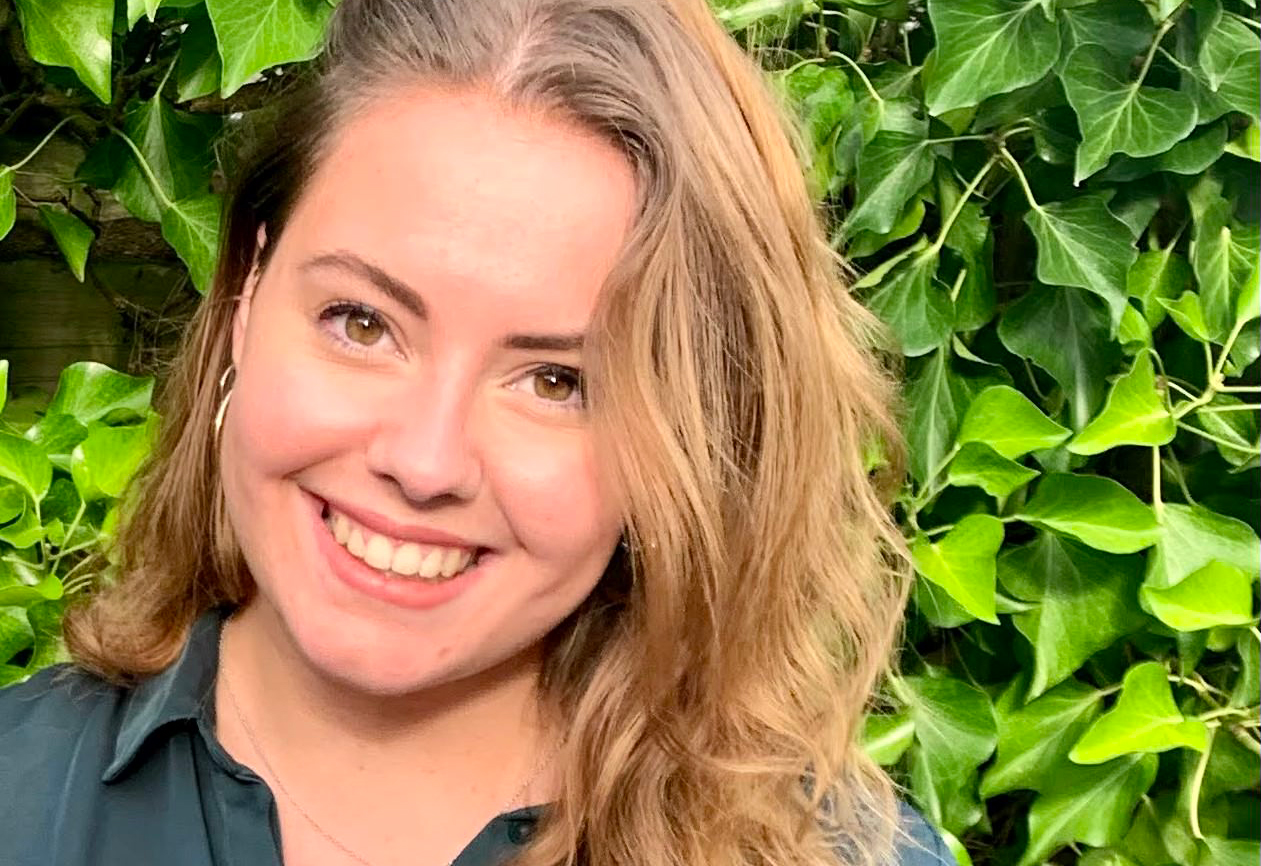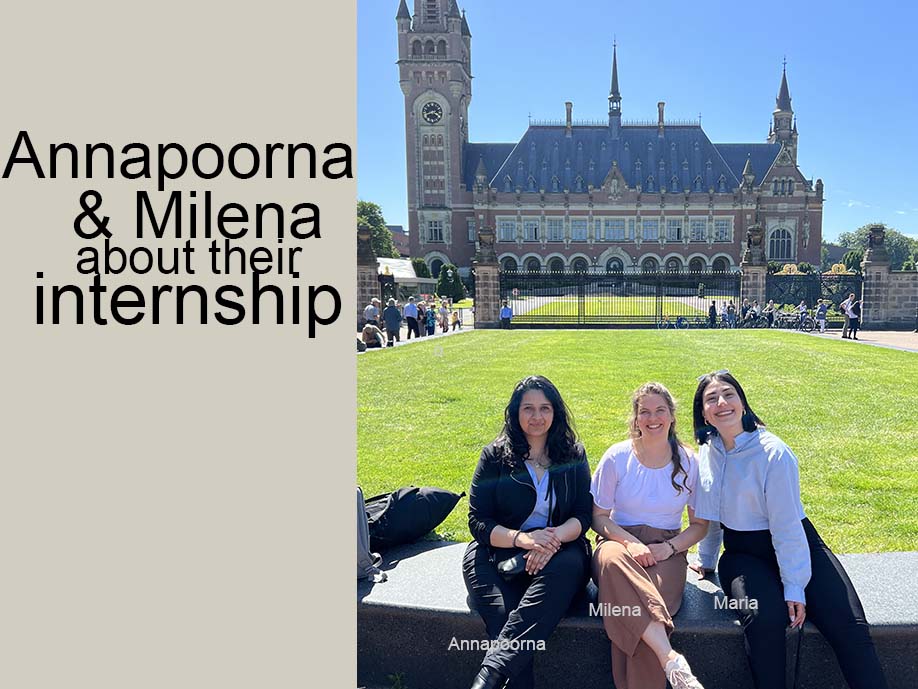
students Annapoorna & Milena
I had this thing lurking in the back of my mind: We are creating something real here. Will our research work out? It felt like a very responsible task.
Independently from one another, three students applied for the same internship. They found it on the list supplied to students of the master's track Ethics of Education. The goal of the internship, which is a joint project of UNICEF and The Hague University of Applied Sciences, is to design and deliver a toolbox to assess the best interest of the child as laid down in the United Nations Convention of the Rights of the Child.
Annapoorna and Milena share how they experienced this internship. For Annapoorna Ananda Kumar (27, India) this project immediately seemed a perfect fit... Milena Lauer (24, Germany) has a pedagogical background and some practical experience in that field. Although it was not what she planned, she decided to make use of the opportunity to try out research.Only at the first meeting as a team in February, the students realized that they were not joining an existing team in a set research project. The three students were in that team. The project has four phases, and they were in phase one: start-up, research, analysis and putting the elements together. The end product will be a web-based toolbox for all contexts, not just for a specific group of children, but for basically everyone that has to make decisions for children. A toolbox that considers how to weigh different interests and focuses on ethical and moral models.Attending a conference session of the UN Committee on the Rights of the Child really kicked off the project. The Netherlands was one of the five countries that presented its reports. The interns joined the proceedings online for two days. They found it very inspiring to see on the inside how this branch of the UN works. Afterwards, they spoke with a UNICEF representative who sent them the Dutch report. Some 14 weeks later, the students presented the outcome of their work to UNICEF.In those weeks, they worked on their research individually, discussed their findings as a team, and had weekly online meetings with their onsite supervisor, dr Laurence Guérin. The toolbox designed by the Netherlands’ Ombudsman for Children served as a starting point for their research.A: ‘Although we could apply a lot of what we had learnt in the master’s courses before we started the internship, it was still quite scary because we had to start from scratch. No one knew what was already out there. We had to find out which countries did have toolboxes, and of course, language was a limitation, too. Therefore, we looked at the countries we spoke the language. Besides in English, we could look for toolboxes in Hindi, German and Greek. There was a period we were somewhat confused about how our research would turn out. In the first few months, even though dr Guérin would confirm we were on the right track, I had this thing lurking in the back of my mind. “We are creating something real here. Will our research work out?” It felt like a very responsible task.’M: ‘Yes, it was kind of scary. We did not know how many toolboxes we would find, so we also looked for articles and papers on how to assess the best interest of the child and studied those. Doing the project was up and down, from very scary and feeling ‘I am inexperienced’ to actually presenting our work and feeling very proud that we found so many things. Looking back, I think we could have expressed our doubts earlier. Only a few weeks before the presentation I asked dr Guérín: “Do you really trust us to present to UNICEF? Are you sure what we did will be beneficial in any way?” She reassured us that everything we did would be an addition to the existing toolbox. She pointed out that what we did with the ethical models was not there at all. Therefore, when things became more practical, dr Guérín guided us a lot. She gave feedback on the presentation and commented on the documents. The first phase, doing the research was overwhelming and intense for us. The distance did not make it easier. With dr Guérín working in The Hague, meeting online was practical and it did work well. I think we could have been more resourceful in asking for help. Like setting up an extra meeting to discuss our worries, and be more open about our insecurities from the start. I will take that with me in future experiences.’A: ‘I can relate to that very much. We could have looked for more options maybe to verify where our position was in terms of research. The stress was also good because it made us look harder and maybe we found more because of it. We have now built up the confidence that even if you initially are confused, you will figure out where you are in your research. And, once we started analyzing the toolboxes we found in different countries, and extracted elements to use in the new toolbox, it became so interesting! I knew there is a gap between policies and laws, and how laws are implemented. Well, what we did in this internship is about bridging that gap. We worked at the middle point, where you make laws more feasible for professionals that have to make use of those laws. To provide professionals like teachers, educators, and social workers an easier understanding of how to apply the law in the best way possible, because they might not know how to do that. This was a very good insight for me.’M: ‘I think I have a better understanding of the everyday practice of research. Research is a task you grow into, not something you are expected to know right away. I learnt that, when starting, researchers do not always have a clear idea of what to do. They try to find something out and research requires a lot of teamwork. You have to address things, again and again, just have a go and think about it.’A: ‘Yes, working individually and as a team was also a great experience. Coming from different countries and having different educational backgrounds, we learnt so much from each other. Each of us analyzed the first two tools and found that from different perspectives we noticed and addressed different things. As a team, you learn things together.’M: ‘I found that the more practical the work became, the more fun I had. In this first phase of the project, we did the research, and the analysis and then we looked a little bit into the next phase, which is designing. I had so much fun with graphic design and skilled myself in making something that is in your head visible to others. The best part of the project for me was the final presentation and knowing that at that moment, you are the expert. In university, you feel that the professor is probably still the expert; they have done it so many times and probably heard it all before. However, with this presentation, we were the experts. Getting questions and critical comments from UNICEF was such a nice experience. This is not something you are graded on, it is a completely different quality of work, I think. I learnt how to turn research into a practical thing. That translation for me was new.’A: ‘This project showed me another option of how to combine education and law. This bridging of the gap, I spoke of earlier. I eventually want to go back to India. This experience gave me a new foundation to go further in things I have been involved in in the past, like the implementation of education policy and working on holistic education.’M: ‘I am a little bummed that the project is over for us now. We will have a meeting with our university supervisor who assesses our reports. The next cohort of students will go on with the toolbox. They will work with software designers, make the website, and try it out with teachers. Then research and the actual practice will be connected even more. I think that is going to be very interesting. Even though I found the practical part more fun, I do not regret doing the research part. I found it very interesting and learnt a lot about my research abilities. I can see myself doing some more research, but not forever. After gaining some practical experience in education, I think I would like to teach at a university and combine practical knowledge with research and teaching.
lees verder ...


